Mental Health Matters: How to Ease Your Return to the Workplace
October marks Mental Health Awareness Month in Australia. This year’s theme is #MentalHealthMatters, highlighting the importance of raising awareness of mental health in the community. Almost 50% of all Australians aged 16-85 will experience some form of mental illness at some point during their lifetimes. Often hidden from view, the issue has come to the fore during the COVID-19 pandemic, which has seen people’s lives turned upside-down. A survey conducted in August found that around half of Australians felt anxious and one in six reported symptoms of depression.
The last seven months have certainly taken their toll. People have been isolated from family and friends, forced to cancel or postpone long-awaited holidays and events, as well as contend with financial worries and fears for their health and that of loved ones. Where, when and how we work has also changed, with many employees shifting to work-from-home arrangements. Virtual working comes with its benefits, of course, such as avoiding the daily commute and gaining more flexibility around scheduling. The difficulties have been very real, however, with many employees struggling with technology, a lack of direct interaction with co-workers, and the presence of children and housemates in their new ‘office space’.
Those employees who have remained in the workplace have also faced their share of challenges, requiring them to swiftly adapt to modified workplaces and practices. And, especially for those in customer-facing roles, there has been ongoing worry about the risks posed by an invisible virus.
With the NSW government now actively encouraging most employees to return to the workplace, it is understandable to have concerns about COVID safety and another change in routine. What can you do to ease your fears and anxiety as we move towards a COVID-normal world?
Check your workplace is COVID safe
Before returning to the workplace, speak with your employer about any concerns you have, especially if you or a close family member are in a vulnerable category. Find out what they are doing to ensure your workplace is COVID safe, and what your role is in this. Employers have a duty to ensure that physical distancing measures are in place, and that health & hygiene are a top priority. At Optimal Recruitment, we currently offer a specially designed 2-hour course on ‘Infection Prevention & Control Training in Your Workplace’ facilitated by an experienced TAFE teacher and registered nurse. Please contact Julie Lawther on 02 8416 4181 to book your session.
Look after yourself
It might seem obvious but look after yourself! There are many ways to ensure optimal mental health and overall wellbeing. Here are some tips you’ll no doubt have heard before:
- Eat a healthy diet, including plenty of fruit and vegetables, and stay hydrated
- Aim for around 7-9 hours’ sleep each night
- Engage in regular physical activity, e.g. walking, jogging, yoga or swimming
- Try to reduce alcohol intake and cut down on cigarettes
- Listen to calming music
- Take each day as it comes
Speak out and share the load
Finally, speak out to family and friends if you are struggling with stress, anxiety and depression. Sharing your feelings with someone else can provide you with the support and encouragement you need. Professional help is also at hand. Your GP can provide access to 10 subsidised therapy sessions with a psychologist, psychiatrist or other allied health provider through a Mental Health Treatment Plan. An additional 10 sessions are currently offered for those already on a plan, who have used up their 10 sessions (conditions apply). Helplines, such Lifeline crisis support and Beyond Blue’s Coronavirus Mental Wellbeing Support Service, are also a valuable resource, with trained counsellors providing a listening ear 24/7.
Mental health really does matter. Make yours a priority this October and gain the tools you need to pave the way to a happier and healthier 2021.
Useful resources
Information sheet on mental health support for individuals during the COVID-19 pandemic
Fact sheet on mental health support for employees during the COVID-19 pandemic
Information and digital resources on mental wellbeing
https://headtohealth.gov.au/covid-19-support/covid-19
Lifeline crisis support: 131 114
Beyond Blue’s Coronavirus Mental Wellbeing Support Service: 1800 512 348









